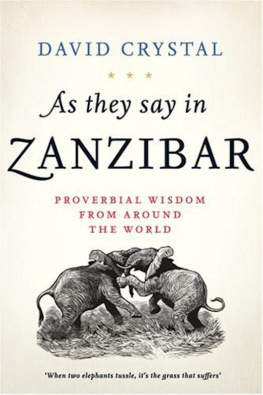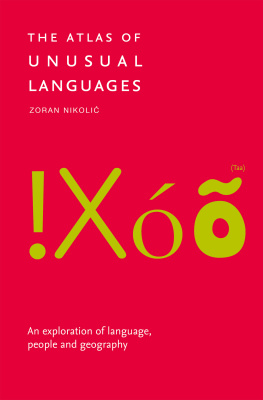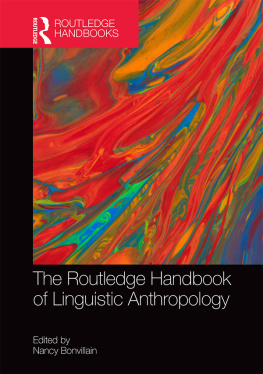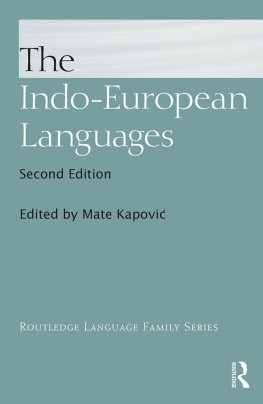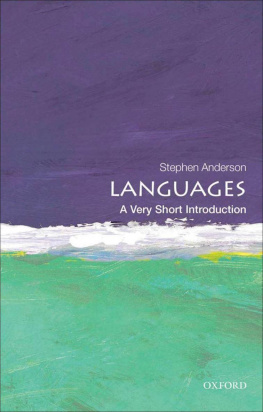The Future of Englishes
The emergence of English as a genuine world language is the earliest of the three trends which achieved especial prominence during the 1990s. The word genuine is crucial. The possibility that English might evolve a global role had been recognized as early as the eighteenth century. In 1780 the future US president John Adams said: English is destined to be in the next and succeeding centuries more generally the language of the world than Latin was in the last or French is in the present age. But, in order to speculate about the future of English or, as I shall explain below, Englishes we must first understand where we are now, and how the present situation has arisen.
The present
A characterization, to begin with; then some statistics. A language does not achieve a genuinely global status until it develops a special role that is recognized in every country. This role will be most obvious in countries where large numbers of the people speak it as a first language in the case of English, this would mean the USA, Canada, Britain, Ireland, Australia, New Zealand, South Africa, several Caribbean countries and a scattering of other territories. However, no language has ever been spoken by a mother-tongue majority in more than a dozen or so countries, so mother-tongue use by itself cannot give a language global status. To achieve such a status, a language has to be taken up by other countries around the world. They must decide to give it a special place within their communities, even though they may have few (or no) mother-tongue speakers.
There are two main ways in which this can be done. First, the language can be made the official (or semiofficial) language of a country, to be used as a medium of communication in such domains as government, the law courts, the media and the educational system. To get on in such societies, it is essential to master the official language as early in life as possible. This role is well illustrated by English, which as a result of British or American history now has some kind of special administrative status in over seventy countries, such as Ghana, Nigeria, India, Singapore and Vanuatu. This is far more than the status achieved by any other language (French being closest). Second, the language can be made a priority in a countrys foreign-language teaching. It becomes the language which children are most likely to be taught when they arrive in school, and the one most available to adults who for whatever reason never learned it, or learned it badly, in their early educational years. Over 100 countries treat English as just such a foreign language; and in most of these it is now recognized as the chief foreign language to be taught in schools.
Because of this three-pronged development of first-language, second-language and foreign-language speakers it is inevitable that a world language will eventually come to be used by more people than any other language. English has now reached this stage. Those who have learned it as a first language are estimated to be around 400 million though estimates vary greatly, because few countries keep statistics about numbers of speakers. Those who have learned it as a second language are also difficult to estimate, for now we must take into account the levels of fluency achieved. If we take a basic level of conversational ability as the criterion enough to make yourself understood, though by no means free of errors, and with little command of specialized vocabulary the figure is also some 400 million. The significance of these two figures should not be missed: as many people now use English as a second language as use it as a mother-tongue. And because the population growth in areas where English is a second language is about three times that in areas where it is a first language, second-language speakers of English will soon hugely exceed first-language speakers a situation without precedent for an international language. When the number of people who speak English as a foreign language is taken into account, this contrast becomes even more dramatic. Here too estimates are uncertain no-one knows, for example, how many people are learning English in China but the British Council has estimated that roughly a billion people are learning English around the world at any one time. Excluding the complete beginners, it would seem reasonable to take two-thirds of these as a guess at the number of foreign learners with whom it would be possible to hold a reasonable conversation in English say 600 million.
If, now, we add the three totals the 400 million or so who use it as a first language, plus the 400 million or so who use it as a second language, and the 600 million or so who use it as a foreign language we will end up with a grand total of about 1,400 million. This in round terms is a quarter of the worlds population (just over 6,000 million in 2000). No other language is used so extensively either numerically, or with such geographical reach. Even Chinese, found in eight different spoken languages, but unified by a common writing system, is known to only some 1,100 million, and most of these are mother-tongue speakers in a few territories. Of course, we must not overstate the situation. If one in four of the worlds population speaks English, three out of four do not. We do not have to travel far into the hinterland of a country away from the tourist spots, the airports, the hotels, the restaurants to encounter this reality. But even so, one in four is impressive, and unprecedented. And we must ask: Why? It is not so much the total, as the speed with which this expansion has taken place, very largely since the 1950s. What can account for it?
An obvious factor, of course, is the need for a common language, or lingua franca a concept probably as old as language itself. But the prospect that a lingua franca might be needed for the whole world is something which has emerged strongly only in the twentieth century, and since the 1950s in particular. The chief international forum for political communication the United Nations dates only from 1945, and then it had only fifty-one member states. By 1960 this had risen to over eighty members. But the independence movements which began at that time led to a massive increase in the number of new nations during the next decade, and this process continued steadily into the 1990s. In 2003 there were 191 members in the UN nearly four times as many as there were fifty years ago. The need for lingua francas is obvious, and pressure to find a single lingua franca is a consequence, the alternative being expensive and often impracticable multi-way translation facilities.
The past
But why English? There is of course nothing intrinsically wonderful about the English language that it should have spread in this way. Its pronunciation is not simpler than that of many other languages, its grammar is no simpler what it lacks in morphology (in cases and genders) it certainly makes up for in syntax (in word-order patterns) and its spelling certainly isnt simpler. A language becomes a world language for one reason only the power of the people who speak it. But power means different things: it can mean political (military) power, technological power, economic power and cultural power. Each of these influenced the growth of English at different times. Political power emerged in the form of the colonialism that brought English around the world from the sixteenth century, so that by the nineteenth century, the language was one on which the sun never sets. Technological power is associated with the Industrial Revolution of the eighteenth and nineteenth centuries, when over half of the scientists and technologists who made that revolution worked through the medium of English, and people who travelled to Britain (and later America) to learn about the new technologies inevitably had to do so And in the twentieth century, we indeed saw the fourth kind of power, cultural power, manifesting itself in virtually every walk of life through spheres of chiefly American influence.
Next page

